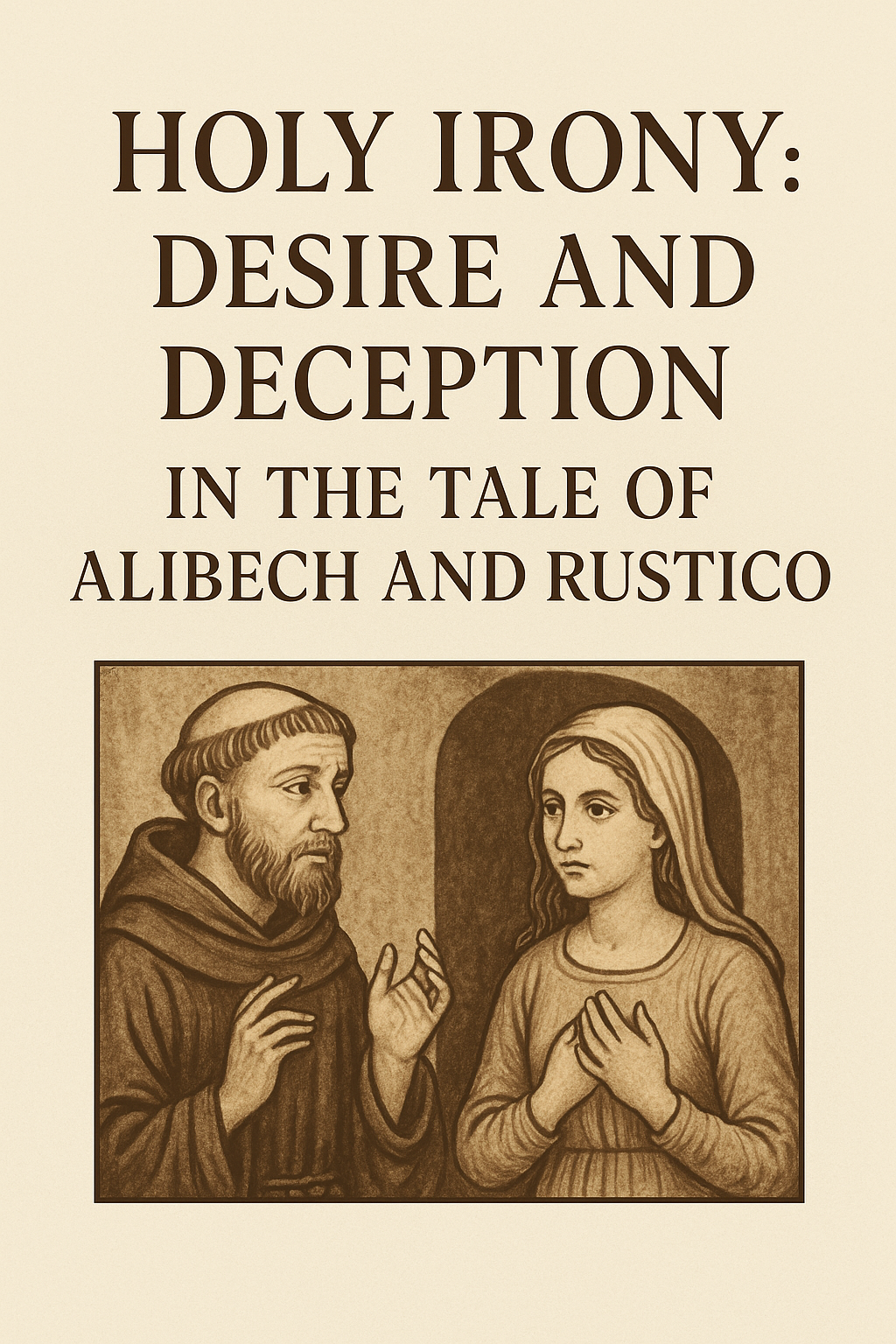Lydia’s Deceit: A Test of Love and Loyalty

Introduction:
The Boccaccio’s “Ninth Tale” (VII, 9) from The Decameron, focusing on the complex interplay of love, deception, and the subversion of societal expectations. The story, narrated by Panfilo, masterfully blends elements of a traditional tale of infidelity with a clever twist, highlighting the resourcefulness of the female protagonist, Lydia, and the gullibility of her husband, Nicostratus. The narrative's origins in various Eastern traditions further enrich its exploration of universal themes of desire, trust, and the construction of reality.
Summary:
Lydia, married to the older Nicostratus, falls deeply in love with Pyrrhus, a younger man in her husband’s service. Pyrrhus, suspecting a test, demands three impossible tasks as proof of her devotion: killing Nicostratus’ prized falcon in his presence, stealing a lock of his beard, and extracting one of his teeth. Lydia, driven by her love for Pyrrhus, accomplishes each task through cunning and manipulation. Finally, she orchestrates a scene in the garden where she and Pyrrhus consummate their relationship while Nicostratus, convinced by a clever ruse involving a pear tree, believes he is hallucinating.
Analysis:
The story’s structure is crucial. Boccaccio uses a framing device, with Panfilo’s introduction emphasizing the risks and potential consequences of following Lydia’s example. This serves to both engage the reader and subtly distance the narrator from condoning Lydia’s actions. The three tasks function as escalating tests of Lydia’s commitment, each requiring increasing levels of audacity and deception. The falcon's murder symbolizes the destruction of Nicostratus’s prized possession, mirroring the destruction of his marital fidelity. The theft of the beard and tooth represents a violation of his physical person, highlighting the intimacy of Lydia’s betrayal.
Lydia’s motivations are complex. She is not simply driven by lust but by a deep, passionate love for Pyrrhus. Her actions, though deceitful, stem from a desire for fulfillment and happiness denied to her by her marriage to an older, less attentive husband. Nicostratus’s character is equally important. His blindness to Lydia’s affections and his gullibility contribute to the humor and irony of the tale. He represents the patriarchal authority easily outwitted by a determined woman. The pear tree scene is a masterclass in dramatic irony, as the reader is aware of the deception while Nicostratus remains blissfully unaware.
The story's relevance extends beyond its time. It explores timeless themes of desire, betrayal, and the power dynamics within relationships. Boccaccio’s use of humor and irony allows him to critique societal expectations of female behavior while simultaneously celebrating Lydia’s cleverness and determination. The tale’s Eastern origins suggest a broader, cross-cultural understanding of the complexities of love and the lengths to which people will go to achieve their desires.
Personal Response:
I found Lydia’s resourcefulness and audacity both captivating and unsettling. While I don’t condone her actions, I appreciate the story’s subversive nature and its willingness to challenge conventional notions of female fidelity. The humor and irony throughout prevented the narrative from becoming overly didactic or moralistic, making it a thoroughly engaging read.
Conclusion:
Boccaccio’s “Ninth Tale” remains relevant because it explores universal themes that continue to resonate with audiences today. It is a story about the complexities of love, the limitations of societal expectations, and the enduring power of human desire. Lydia’s actions, though morally questionable, demonstrate her agency and intelligence, making her a compelling, if flawed, protagonist. The story’s enduring appeal lies in its clever plotting, its witty dialogue, and its insightful exploration of human nature.







